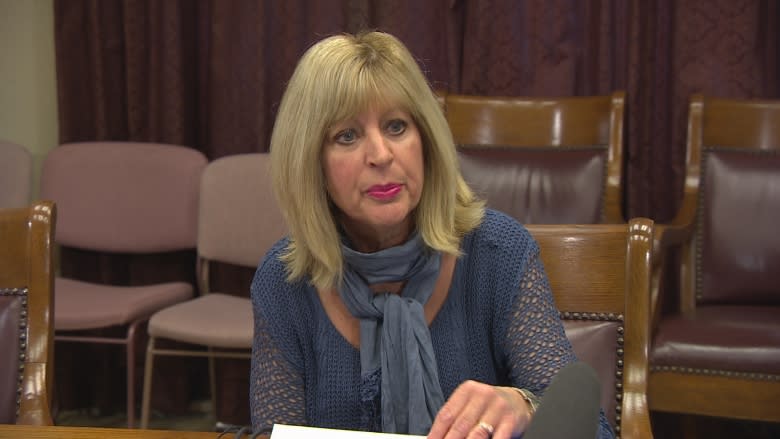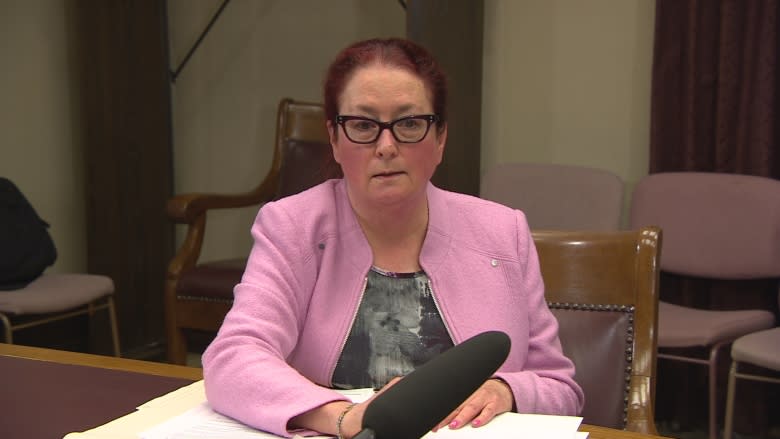Hog industry likes changes to manure rules that critics say smell bad
Proposed changes to Manitoba's rules on manure spreading and nitrate limits, which will have important implications for the hog industry, don't pass local biologist Eva Pip's sniff test.
The retired University of Winnipeg biologist says the regulatory changes, which will allow manure to be spread further across the province, is a major step backwards when it comes to environmental protections.
The province says the changes will cut down on red tape and make farmers' lives easier, but Pip argues it puts public safety at risk.
"It's not red tape if it is something that is essential for the protection of our environment and public health," she said.
The changes will allow livestock producers to ship their excess manure to other land with no restriction on distance, and will allow the transport of manure as long as the farmer has followed current regulations and has an agreement with the owner of the land the manure is being transported to.
But Pip says once you begin to ignore nitrate levels and manure setbacks, it ignores associated problems such as E. coli.
"If you start de-regulating in one area it becomes a snowball effect."
In a media briefing Thursday, Sustainable Development Minister Cathy Cox told reporters there would still be requirements for manure management plans and soil testing and that Manitoba's environment would not be put at risk by the changes.
Manitoba will still not allow producers to spread manure in the winter.
Changes celebrated by pork industry
Manitoba Pork general manager Andrew Dickson says the changes are a long time coming. He argues the province has some of the strictest regulations in the country when it comes to the hog industry and how it handles manure.
He calls the changes a balanced approach that allows the government to protect the environment, while eliminating impractical regulations.
"I want to make it clear, the regulations, even if they are amended … will still be some some of the most stringent manure management regulations in North America," he said.
"The farmers want to protect the environment above all because they live out there."
Some changes would cut duplication of regulations in provincial legislation. Others are changes to how producers are allowed to store and spread manure.
Public consultation
The proposals will be reviewed by the province after 45 days of consultations with the public. The Progressive Conservative government canvassed industry representatives to develop the changes and held a meeting with environmental groups earlier this week to get their feedback.
There were concerns earlier this year the government would allow the practice of winter spreading after it introduced red-tape legislation with confusing descriptions of the laws it intended to change.
Tracey Braun, the director of environmental assessment and licensing for the province's Department of Sustainable Development, says there will be no changes to managing the nutrient load and the rule changes are focused on what she called "an environmental outcome."
Braun says that will ensure "the prevention of nutrients draining off the landscape and into the Lake Winnipeg watershed … by ensuring that all storage facilities for manure are done according to engineering best practices and design."
Braun says there were "ineffectual treatment practices" that created the elaborate treatment of manure within the livestock industry, and which were "not required to protect the environment."
She said the new regulations would be more science-based and the department will post the evidence online.
Braun doesn't believe the new regulations would necessarily pave the way for an expansion of hog operations in Manitoba. There is no cap on how many animals producers can have in Manitoba.
"I don't see it as being easier. I don't see it as being harder or easier. They still have to meet all the same environmental requirements that are in place," Braun says.
'Unnecessary risk'
NDP MLA and environment critic Rob Altemeyer was quick to turn up his nose at the changes.
"It is yet another introduction of unnecessary risk. We need to know our water is being protected, whether you are raising animals in an agricultural operation, whether it's your own drinking water or the lake you enjoy, these changes are not taking us in a good direction," Altemeyer says.
Sustainable development has invited Manitobans looking to weigh-in on the proposed changes. Comments can submit comments to Publicregistry@gov.mb.ca.




